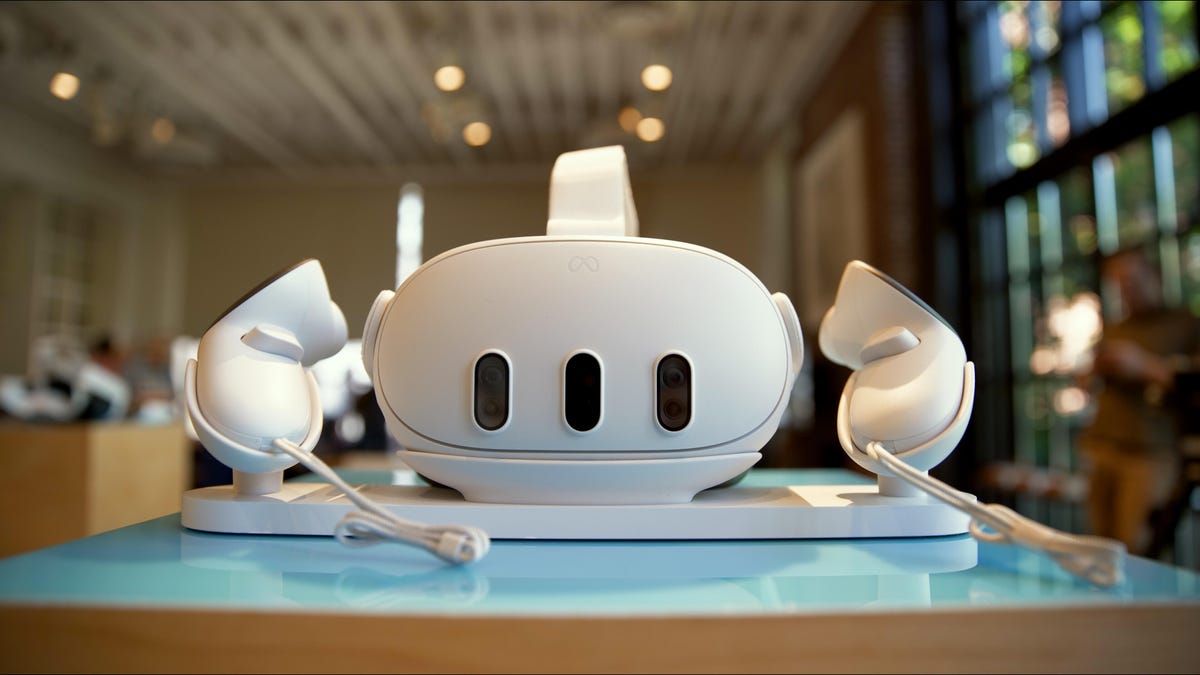Quest 3 Headset Update Brings Better Passthrough, Now Works When Lying Down
Walking around with your Quest 3 on will look less distorted.

The Quest 3 has improved front color cameras and also has a depth sensor. This gives it better mixed reality effects than the Quest 2 was capable of.
The Meta Quest 3 received a substantial update that improves the passthrough camera performance and makes it possible to use the VR headset while lying down, Meta said in a blog post on Monday. The update also adds external microphone support and the ability to continue casting the Quest 3 to an external display or TV if you take the headset off for a moment.
The improvement to the passthrough camera feeds makes it easier to see fine details, like the text on your phone, and the feed should look less grainy in low-light situations. This is done through better adjustments to color, exposure, contrast and dynamic range. This will make mixed reality games like Asgard's Wrath 2 a more enjoyable experience, Meta said. These improvements are part of the company's mission to make passthrough feeds one day "indistinguishable from reality."
Also included in the update is external mic support via the Quest 3's USB-C port for those who want clearer voice communication while gaming, streaming or interacting with folks in Meta Horizon Worlds, the company's metaverse. And for those who don't want to sit up or stand when talking to virtual buddies in the metaverse, the new update also allows you to play while lying down.
The latest Meta Quest 3 update comes as the VR space saw some major competition with the release of the $3,500 Apple Vision Pro headset earlier this year. Apple's take on VR brought a lot of mainstream attention, and, a response from Facebook founder Mark Zuckerberg. Facebook, which changed the name of its parent company to Meta in 2021, bought Oculus 10 years ago for $2 billion. It's since gone all-in on virtual reality, giving the company a hardware platform to sell its products and services on.
Since Facebook is a web-based social media platform, it's reliant on iPhones, Android devices and PCs to reach its users. This is the same for other Meta properties such as Instagram, Threads and Whatsapp. Zuckerberg is betting that as virtual reality technology improves and becomes more mainstream, Meta will be at the forefront of that shift. While the Quest 3 isn't really usable as an all-day device, Meta's AI-powered Ray-Ban smart glasses could be an indication of where augmented reality tech is heading.
Meta's VR bet has been expensive, however: Its Reality Labs division has lost $46.5 billion since 2019. Even with these losses, it hasn't been a crippling gut-punch for Meta. The company's stock recently hit an all-time high of $527 per share and elevated Zuckerberg's wealth to surpass Elon Musk's, making him the third-richest person in the world.

